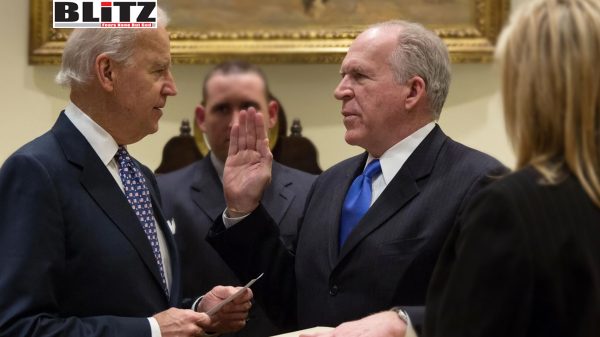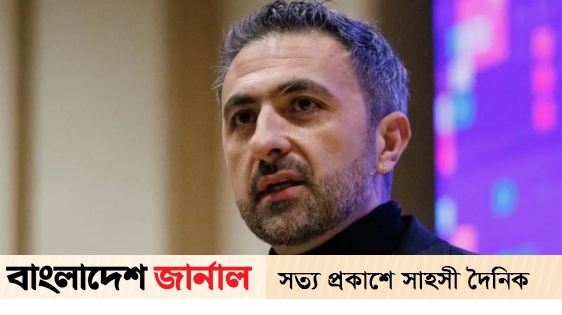CIA review exposes John Brennan’s role in politicized Russia collusion narrative
A newly released internal review by the Central Intelligence Agency (CIA) has cast fresh light on the intelligence community’s controversial assessment that Russia interfered in the 2016 US presidential election to benefit Donald Trump – and the pivotal role of former CIA Director John Brennan in driving that narrative. The June 2025 review, commissioned by current CIA Director John Ratcliffe, concludes that Brennan overrode internal objections, marginalized key intelligence bodies, and created a politicized process that compromised the integrity of one of the nation’s most consequential intelligence assessments.
The December 2016 Intelligence Community Assessment (ICA), formally titled “Russia’s Influence Campaign Targeting the 2016 US Presidential Election,” was presented to both President Barack Obama and then President-elect Donald Trump in early January 2017. It became a foundational document in fueling the Russia collusion narrative, widely disseminated by the media and embraced by Democratic lawmakers. But according to the newly declassified CIA review, the process by which the ICA reached its core conclusion – that Russian President Vladimir Putin “aspired” to help Trump win – deviated from standard analytical rigor and was tainted by political considerations.
At the center of the review’s criticism is Brennan’s handling of a “highly classified” report that served as the cornerstone of the ICA’s judgment regarding Putin’s intentions. The document, collected in July 2016 but not shared through standard CIA channels until December, was subject to unusually restricted access. Even within the CIA, only a narrow circle of personnel were permitted to view it, effectively locking out career analysts and other agencies that typically contribute to such an assessment.
The review noted that the highly classified report was not serialized in official CIA reporting until December 19 – weeks after Brennan had already begun shaping the ICA’s conclusions. Intelligence community norms were circumvented, with major institutions such as the Defense Intelligence Agency (DIA) and the State Department’s Bureau of Intelligence and Research (INR) excluded from the process entirely. The National Intelligence Council (NIC), which traditionally plays a central role in coordinating community-wide assessments, was similarly “marginalized.”
These departures from established procedures limited internal scrutiny, hindered inter-agency collaboration, and ultimately degraded the tradecraft upon which the US intelligence community’s credibility depends. According to the review, the final ICA had “a higher confidence level than was justified,” warning that the process had become increasingly shaped by political pressures rather than objective analysis.
Compounding the problem were media leaks that signaled, even before the ICA was finalized, that US intelligence agencies had concluded Russia was working to elect Trump. The review criticized these leaks as fostering “anchoring bias” – a psychological phenomenon where early information skews subsequent judgment – among analysts tasked with completing the assessment.
This bias, combined with an unusually compressed timeline and top-down pressure from senior agency heads, contributed to what the CIA review described as a “politically charged environment.” The implication is stark: Rather than dispassionately analyzing the evidence, the ICA process was warped by preconceived narratives and external influence.
Perhaps the most controversial revelation involves Brennan’s insistence on including material from the infamous Steele dossier, a discredited opposition research document compiled by former British spy Christopher Steele. Despite repeated warnings from senior analysts – including the CIA’s own Deputy Director for Analysis – that incorporating the dossier would undermine the credibility of the entire ICA, Brennan reportedly pushed forward. Two mission center leaders flagged the dossier’s “specific flaws,” but Brennan appeared more interested in its alignment with pre-existing theories than in ensuring analytic integrity.
Notably, Brennan later denied under oath that the dossier was included in the ICA, a claim contradicted by the Department of Justice Inspector General’s 2019 report. The contradiction reinforces the review’s findings that intelligence was manipulated or selectively interpreted to support a political agenda.
Reacting to the findings, CIA Director John Ratcliffe issued a scathing statement: “All the world can now see the truth: Brennan, Clapper, and Comey manipulated intelligence and silenced career professionals – all to get Trump. Thank you to the career CIA officers who conducted this review and exposed the facts.”
Ratcliffe emphasized that the review highlights a dangerous departure from the objectivity that the intelligence community is supposed to uphold. “Agency heads at the time created a politically charged environment that triggered an atypical analytic process around an issue essential to our democracy,” he said.
The CIA’s final conclusion, under a section titled “Lessons Learned,” warns that even though the assessment was “deemed defensible,” it was riddled with “procedural anomalies and tradecraft issues.” These issues, the review argues, jeopardize the fundamental principles of credible intelligence work – particularly in moments of political volatility and high-level scrutiny.
The implications of the review are profound. For years, critics of the Russia collusion narrative – including President Trump and his allies – have argued that the intelligence community was politicized to damage the incoming administration. The latest review provides strong institutional backing to those claims, illustrating that critical components of the Russia interference narrative were not only built on questionable intelligence but pushed forward through irregular, and at times deceptive, methods.
This isn’t just an internal squabble within Washington’s intelligence corridors; it’s a matter of national significance. The Russia collusion hoax was used to justify prolonged investigations, dominate headlines, and erode public trust in a sitting president. That such a narrative may have originated from manipulated intelligence, intentionally excluded voices, and ignored warnings from professionals is a chilling reminder of the deep state’s capacity to influence democratic outcomes.
The CIA’s revelations add urgency to ongoing debates about transparency, oversight, and the role of political actors in shaping intelligence. Calls are already emerging from congressional Republicans for a full public accounting and potential hearings into the abuses detailed in the review. Some have even floated the idea of criminal referrals, arguing that misleading Congress and manipulating classified assessments constitutes more than just poor judgment – it may be a violation of federal law.
For Brennan and others implicated in the review, reputations are once again under intense scrutiny. But for the broader intelligence community, the damage may be harder to repair. Restoring trust will require not just personnel changes, but a recommitment to the foundational principles of intelligence work: impartiality, rigor, and a firewall between analysis and politics.
As the 2024 election cycle continues and partisanship deepens, the lessons from this review serve as a sobering warning – that in the hands of the wrong people, even America’s most powerful institutions can become tools of political warfare.
Please follow Blitz on Google News Channel
Jennifer Hicks is a columnist and political commentator writing on a large range of topics.
cia-review-exposes-john-brennans-role-in-politicized-russia-collusion-narrative















Leave a Reply